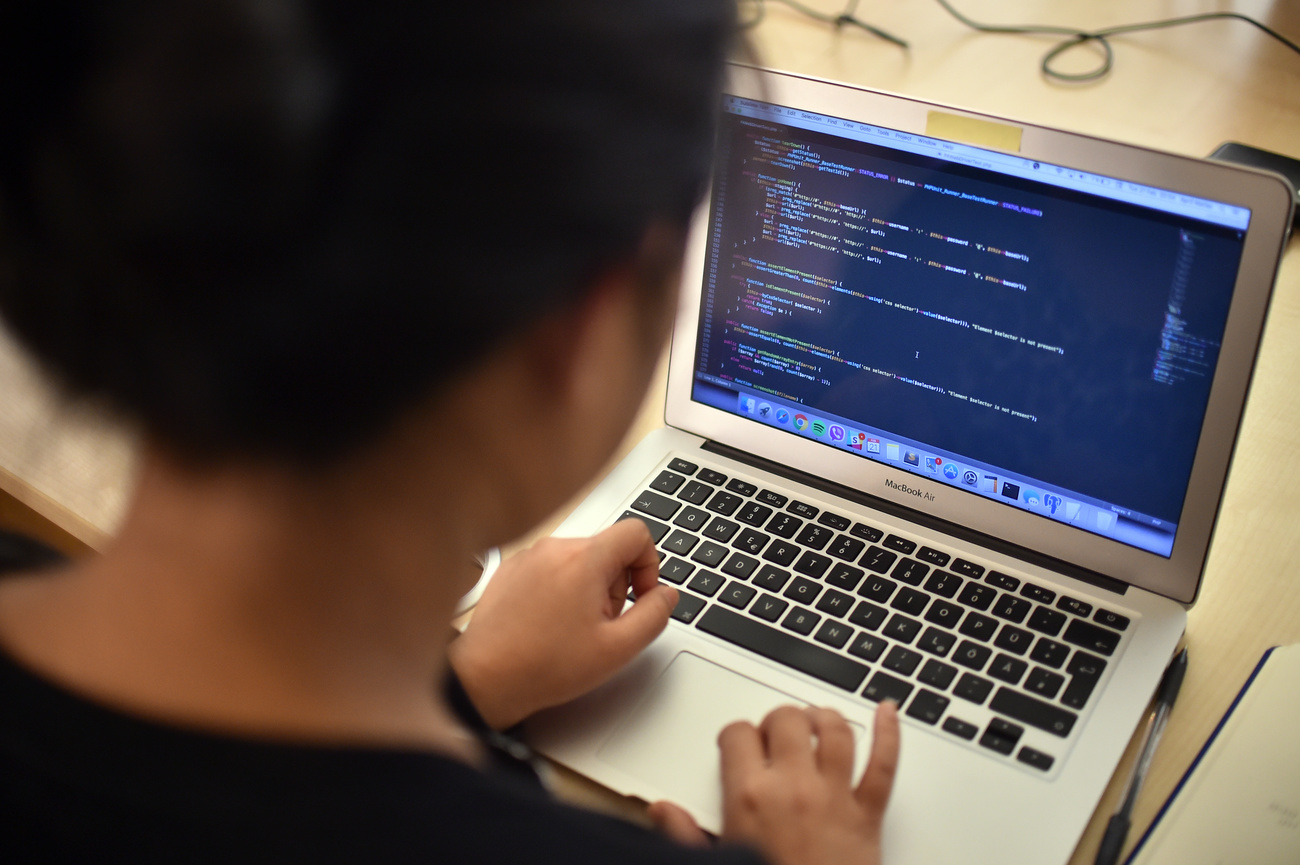
Swiss scientists launch high-level quantum computing language

Computer scientists from the federal technology institute ETH Zurich have designed the first easy-to-use programming language for quantum computers.
As the first high-level programming languageExternal link for quantum computers, SilqExternal link can describe complex tasks and algorithms with less code. This makes it possible to program quantum computers as simply, reliably and safely as classical computer languages, according to a statement from ETH Zurich.
“Our quantum programming language Silq allows programmers to utilise the potential of quantum computers better than with existing languages, because the code is more compact, faster, more intuitive and easier to understand for programmers,” said Martin Vechev, a computer science professor in ETH’s Secure, Reliable and Intelligent Systems Lab.
Quantum computing has received increased attention over the last decade because of its potential to solve certain problems faster than classical computers. However, to date this has been difficult to prove because quantum computers are currently still too error-prone.
Quantum programming language is used to describe quantum algorithms, which is like a “recipe” for solving a problem. A programming language describes the algorithm so that a computer can perform the necessary calculations.
Silq helps address the source of errors that has plagued quantum programming, which is the ability to erase temporary values created by the computer. Silq automatically identifies and erases values that are no longer needed.
There are still many open questions, says Vechev.
“Silq is a major breakthrough in terms of optimising the programming of quantum computers; it is not the final phase of development.”
As the language is easier for programmers, Vechev hopes Silq will help stimulate more innovation in quantum programming languages and algorithms.

More
Swiss projects to help build a quantum future

In compliance with the JTI standards
More: SWI swissinfo.ch certified by the Journalism Trust Initiative





























You can find an overview of ongoing debates with our journalists here . Please join us!
If you want to start a conversation about a topic raised in this article or want to report factual errors, email us at english@swissinfo.ch.